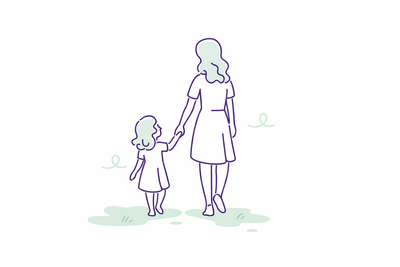
Life subjects are resilience, empathy, curiosity, self-confidence, self-control, optimism, and perseverance. These should also be school subjects, but in schools, especially in the early years, there's little focus on individuals and too often children become numbers.
In all my twenty-something-year school career, I felt like my value as a person was directly proportional to my results and my grades.
"You are not reaching your full potential", said one teacher. I knew I reached my full potential elsewhere — somewhere that interested me more than her subject — but I didn't speak up. I was really good at school, but I remember a sense of failure that never left me alone. When I got a high score I thought, "Next time you can aim higher". And when I got the highest score, "Now you have to maintain it". I felt I couldn't win and that feeling stayed with me for years in my adult life.
Why am I telling you this?
Because school often turns kids into numbers: let's not make the same mistake at home. Grades don't reflect the individual. Performance in school doesn't reflect the individual. School itself doesn't reflect the individual — nor life.
Our children are not a number or a result: our children are what they think, what they do, what they feel, what they dream of, what they are passionate about, and what they are committed to. In and out of school.
School makes our children a number, because it's a system that measures the value of a person with their grades. As parents, we can avoid making the same mistake at home: we can communicate to our kids that a grade doesn't at all reflect their value as individuals and it doesn't say what they will do in life or how successful they will be.
Working with children
A low grade reflects anything but a person's worth. It reflects a lack of:
- adequate memorization tools
- healthy study habits
- routines
- affection
- belonging
- interest
- motivation
- effort
- …
In other circumstances, it can also reflect a learning difficulty. These are all things we can work with our children.
Working on ourselves
Again, a low grade reflects anything but the value of the individual.
It reflects:
- too much homework that do not let the brain rest
- an educational system in which you have to memorise everything
- an environment that doesn't allow you to follow your interests (motivation is very different when you choose to study something or when you are forced to do so)
- little empathy and understanding from adults
- always feeling compared to others ("your brother's grades are higher") or to yourself ("last year you did better")
- …
To improve these things and more, adults need to work on themselves and to change the system.
The message we must give at home
Did your child get a low grade? Embrace it. Understand it. Empathise first. Then, sit down at the table to understand the causes together, without getting angry, punishing, or threatening but finding solutions together. When people feel welcome, they are more motivated to find solutions.
And at every step, remember that we're educating for the long term, so we want to remind ourselves: a low grade will not reflect on our children's life and on who they will be. Feeling inferior and incapable because of that low grade, will.
Let's weave this web of thoughts together
I work at a school that has a difficult social context. Unfortunately, grades also reflect a family's economic situation, perpetuating inequalities.
Inequalities are accentuated in a system in which competition is encouraged instead of cooperation.
I understand that school has many limits (especially in keeping motivation and interest high). But part of learning is memorising, isn't it?
Learning is interest. When there is interest you understand. When you understand, you can explain. When you know how to explain something, you truly have understood it, internalized it, and learned it forever. In many subjects, there's very little memorization needed, but the traditional school system often doesn't take the time to explore other methods.
A fourth grade girl in the village school gets low grades in many subjects. I then discover that she has spent months studying two manuals on how to get a truck driver's license, she has a notebook in which she writes everything down and takes driving tests, and she has a deep knowledge of vehicles and trucks.
At school we should focus on children's real interests and use them to encourage them to study subjects with curiosity: this would nurture their natural love for knowledge.
I do it with my 6-year-old son: I compare him to his fourth grade sister who really likes going to school and finds it easy. And I think: what is he going to do if he's just starting and already doesn't like it?
Maybe he will find a teacher who motivates him or maybe he will never like it. And it's ok. What's important is that school isn't everything, that he continues to cultivate hobbies outside of school, that he invests time in something he's really interested in, and that you give him the opportunity to do all this. For many careers schools is no longer required, like we are led to believe: the world has changed, but school has not kept up with the change.
































